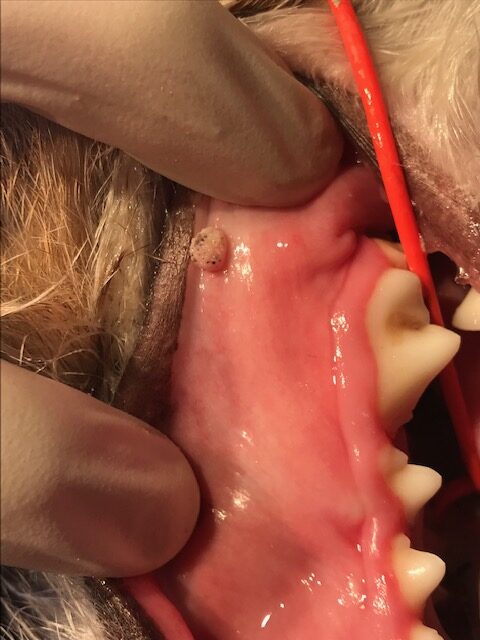
01 May Papilloma Virus in Dogs
Papilloma Virus, also known as the wart virus, causes papillomas or small, benign tumors in different species. It’s important to note that Canine Papilloma Virus (CPV) is specific to dogs and is not transmissible to humans.
Causes of Papilloma Virus in Dogs
CPV occurs most commonly in young dogs whose immune system is not fully developed. It may be seen more commonly in multi-dog households where risk of transmission through contact is higher. Contact with the virus can occur through sharing food and water bowls, toys, and interactive play.
Identifying Canine Papilloma Virus
Papillomas most commonly occur on the face, lips, extremities, and within the oral cavity. These warts are generally small in appearance and pale to pink in color. They tend to be cauliflower-like and may enlarge and become darker over time. Papillomas are typically asymptomatic, producing or showing no symptoms, but may cause oral discomfort and interfere with breathing if large in size or numerous in quantity. A confirmed diagnosis is completed by biopsy and histopathology.
How Do you Treat Canine Papillomas?
The most common treatment is benign neglect. Most often, they will regress on their own in as little as 2 weeks and can possibly take up to a year. If oral discomfort is present, our skill veterinary oral surgeons will help you decide if surgical removal should be considered. On occasion, papillomas have been known to recur after removal so we highly recommend keeping an eye on your dog’s oral health. While a vaccine has been made available to prevent Human Papilloma Virus, there is no vaccine presently available for Canine Papilloma Virus.
Canine Papilloma Virus was previously suspected as a contributing factor to oral squamous cell carcinoma. A definitive link has not been confirmed, but as with any benign (non-cancerous) mass, it should be monitored. If regression of the papilloma does not occur or it changes in appearance, a biopsy should be repeated.
At Animal Dental Care and Oral Surgery, serving Colorado Springs and Castle Pines, your pet’s oral health and comfort is very important to us. Please call us today to schedule an appointment if you are concerned about any possible oral lesions in your dog or cat.
Do you suspect your dog or cat in Castle Rock, Colorado Springs or Loveland, CO has Papilloma Virus?
Contact us today at (719) 536-9949!

